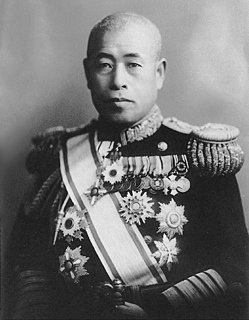A Quote by Adam Hochschild
As the First World War made painfully clear, when politicians and generals lead nations into war, they almost invariably assume swift victory, and have a remarkably enduring tendency not to foresee problems that, in hindsight, seem obvious.
Related Quotes
Have you ever noticed that the only metaphor we have in our public discourse for solving problems is to declare war on it? We have the war on crime, the war on
cancer, the war on drugs. But did you ever notice that we have no war on homelessness? You know why? Because there's no money in that problem. No money to be made off of the homeless. If you can find a solution to homelessness where the corporations and politicians can make a few million dollars each, you will see the streets of America begin to clear up pretty damn quick!
I came to the conclusion that war was an unacceptable way of solving whatever problems there were in the world--that there would be problems of tyranny, of injustice, of nations crossing frontiers and that injustice and tyranny should not be tolerated and should be fought and resisted, but the one thing that must not be used to solve that problem is war. Because war is inevitably the indiscriminate killing of large numbers of people. And that fact overwhelms whatever moral cause is somewhere buried in the history of that war.
... there was the first Balkan war and the second Balkan war and then there was the first world war. It is extraordinary how having done a thing once you have to do it again, there is the pleasure of coincidence and there is the pleasure of repetition, and so there is the second world war, and in between there was the Abyssinian war and the Spanish civil war.
World War Two was a world war in space. It spread from Europe to Japan, to the Soviet Union, etc. World War Two was quite different from World War One which was geographically limited to Europe. But in the case of the Gulf War, we are dealing with a war which is extremely local in space, but global in time, since it is the first 'live' war.
Is it not tragic, for example, that while in the last World War almost everyone believed it was the war to end all wars and wanted to make it so, now in this Second World War almost no writer that I have read dares even suggest that this is the war to end all wars, or act on that belief? We have lost the courage to hope.
When I grew up, in Taiwan, the Korean War was seen as a good war, where America protected Asia. It was sort of an extension of World War II. And it was, of course, the peak of the Cold War. People in Taiwan were generally proAmerican. The Korean War made Japan. And then the Vietnam War made Taiwan. There is some truth to that.






































